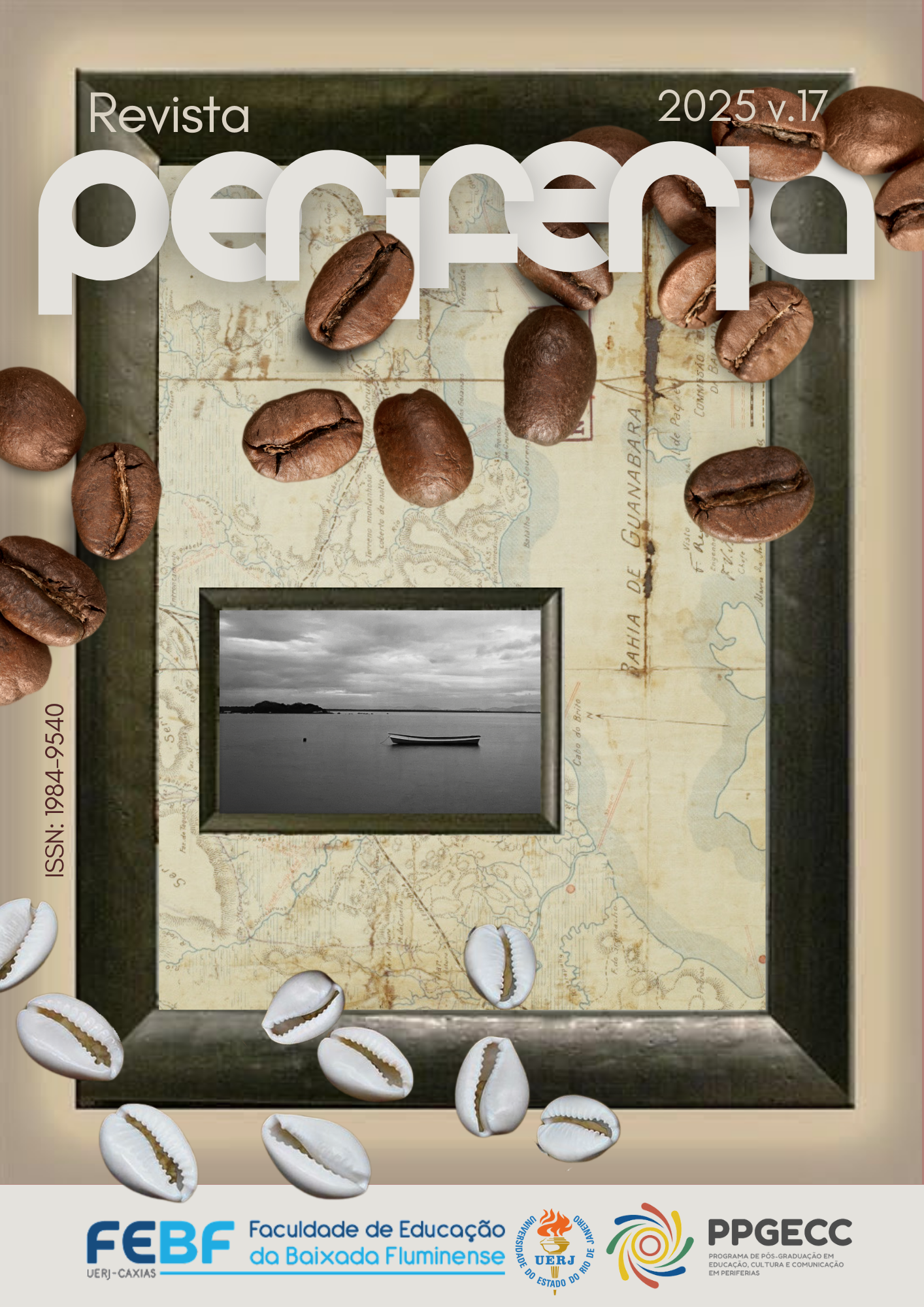POTENTIAL OF HACKER EDUCATION FOR CREATING INCLUSIVE LEARNING ENVIRONMENTS IN SCHOOL CONTEXTS
DOI:
https://doi.org/10.12957/periferia.2025.87190Keywords:
Multiple possibilities of Education, Hacker Education, Human Rights Education, Collaboration, Digital TechnologiesAbstract
Taking as a reference the experiences built throughout the period of execution of the intervention and research project “Conexão Escola Mundo” - which integrated a group of students, teachers and researchers in Florianópolis and Salvador throughout the years 2017-2022, this article problematizes and discusses the current need for pluralization of the term education, while at the same time building fundamentally inclusive school training environments based on human rights education from the perspective of hacker education. The theoretical studies carried out included authors who investigate the role of the school as a social institution that can play a strategic role in fostering citizenship in the present time and who emphasize the importance of teaching work developed in a collaborative regime aiming at continuous training processes. The methodological option involved the production of data through interviews and transcriptions followed by cycles of individual and collective coding and analysis. These data are also what have been supporting the efforts of researchers involved in the project in different analytical approaches after its conclusion. Among the potentialities identified within the scope of this research are the feedback of social networks between young students and between these and their teachers; the establishment of horizontal processes of knowledge exchange and production; and the strengthening of a civic, conscious and active stance in the face of the asymmetries inherent to the contemporary sociocultural context marked by the insertion of digital technologies.
References
HIMANEN, Pekka. A ética dos hackers e o espírito da era da informação: A diferença entre o bom e o mau hacker (F. Wolff, Trad.). Campus, 2001 (Trabalho original publicado 2001)
JIMENÉZ, Pedro. Algunas Ideas Sobre Tecnología, Aprendizaje Y Remezcla. In: Espanha: Zemos98, 2012. p. 301–324.
JOHNSON, Steven. Emergência: a vida integrada de formigas, cérebros, cidades e softwares. Rio de Janeiro: Jorge Zahar, 2003.
LAPA, Andrea. B., LANNA, Lucrécia. C., SILVA, S. Sabrina. Desafios da pesquisa ativista em educação. Revista Teias, 20(Esp), 2019. https://doi.org/10.12957/teias.2019.43336
LEMOS, André. A Tecnologia é um Vírus: Pandemia e cultura digital. 1. ed. Porto Alegre: Editora Sulina, 2021. v. 1
LÉVY, Pierre. Cibercultura. São Paulo: Editora 34, 1999.
MENEZES, Karina. Pirâmide da pedagogia hacker [vivências do (in)possível], 2022. EDUFBA.
PINHEIRO, Daniel Silva. Itinerância autoral docente para criação de materiais didáticos: Tensionamentos e potencialidades em tempos de cibercultura. Tese de Doutorado em Educação – Faculdade de Educação, Universidade Federal da Bahia, 2022. Disponível em: https://repositorio.ufba.br/handle/ri/34903
PINHEIRO, Daniel S., MENEZES, Karina, CORDEIRO, Salete de Fátima. N. Criar de um jeito hacker: Experiências na/com a escola e a universidade. Perspectiva, 39(3), Artigo 3, 2021. Disponível em: https://doi.org/10.5007/2175-795X.2021.e72405
PRETTO, Nelson De Luca; LAPA, A. ; BARTOLOME, A. ; PIERREDU, M. ; BRUNET, K. S. ; LAPA, F. ; RAMOS, V. ; GOUVEIA, F. ; PEZZI, R. P. . Conexão Escola-mundo: espaços inovadores para a formação cidadã. In: TecnoX 4.0 - 4 Encontro Latino americano e caribenho de tecnologias livres, 2019, Porto Alegre/RS. Anais de Resumos: Éticas, direitos humanos e tecnologias livres. Porto Alegre/RS: Editora UFRGS, 2019. v. 01. p. 13-14.
PRETTO, Nelson De Luca. Tecnologia e novas educações. Salvador: EDUFBA, 2005. v. 1
SANTOS, Rosemary. Formação de formadores e educação superior na cibercultura: itinerâncias de grupos de pesquisa no Facebook. 183 f. Tese de Doutorado em Educação – Faculdade de Educação, Universidade do Estado do Rio de Janeiro, Rio de Janeiro, 2015.
Downloads
Published
How to Cite
Issue
Section
License
Authors who publish in this journal agree to the following terms:
a. Authors retain the copyright and grant the journal the right of first publication, with the work simultaneously licensed under the Creative Commons Attribution License which allows the sharing of the work with acknowledgment of the authorship of the work and initial publication in this journal.
b. Authors are authorized to take additional contracts separately, for non-exclusive distribution of the version of the work published in this journal (eg, publish in institutional repository or as a book chapter), with acknowledgment of authorship and initial publication in this journal.
Authors are allowed and encouraged to publish and distribute their work online (eg in institutional repositories or on their personal page) at any point before or during the editorial process, as this can generate productive changes as well as increase the impact and the citation of the published work (See The Effect of Free Access).



